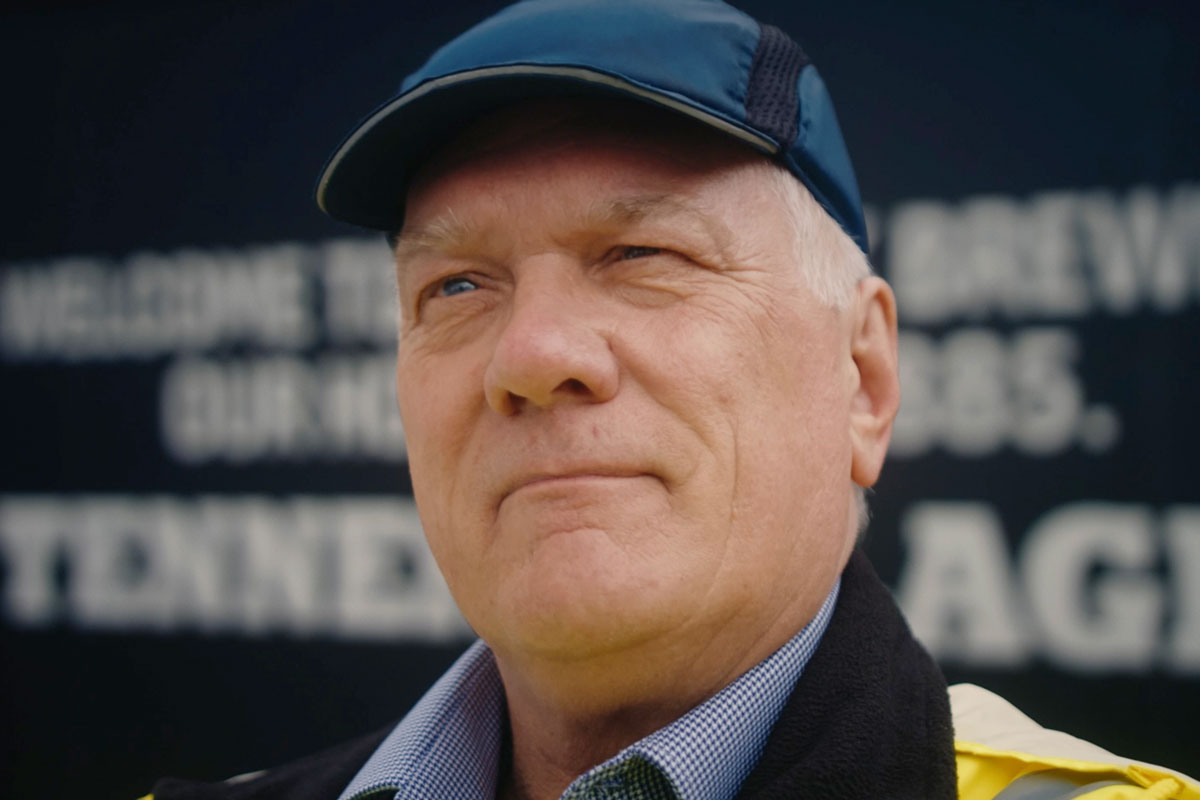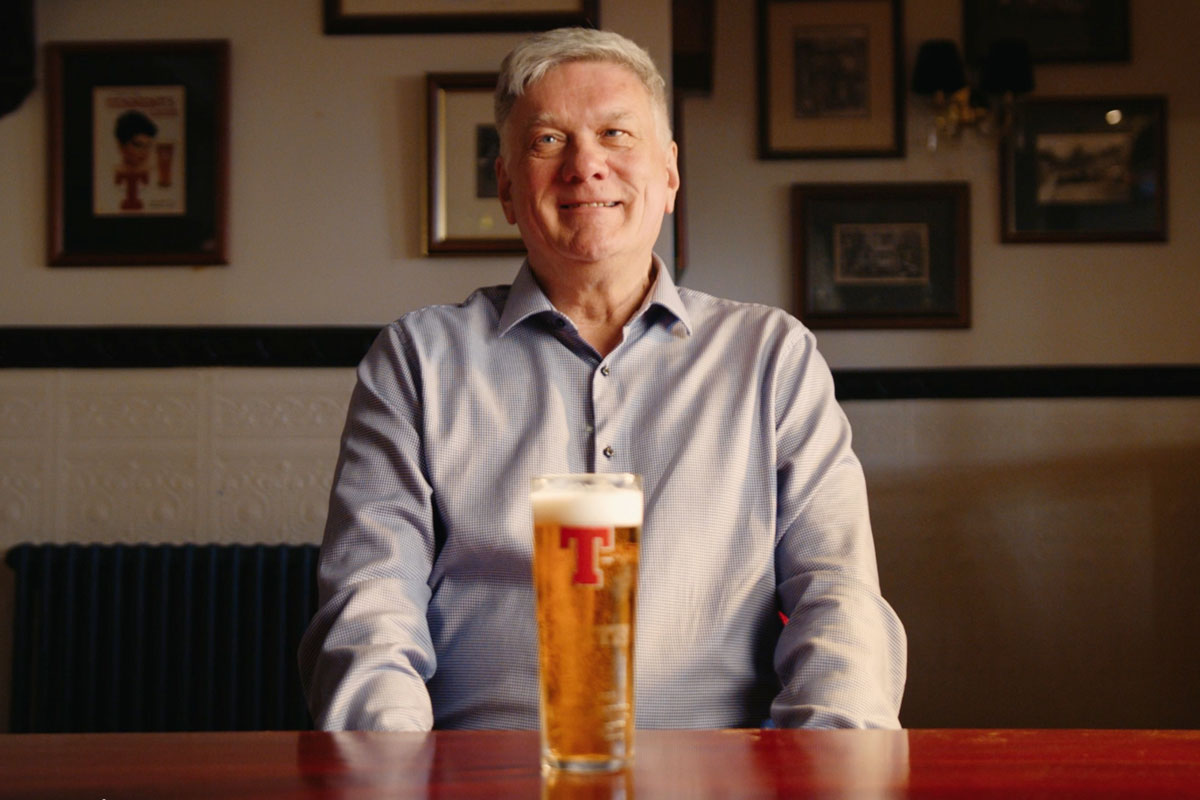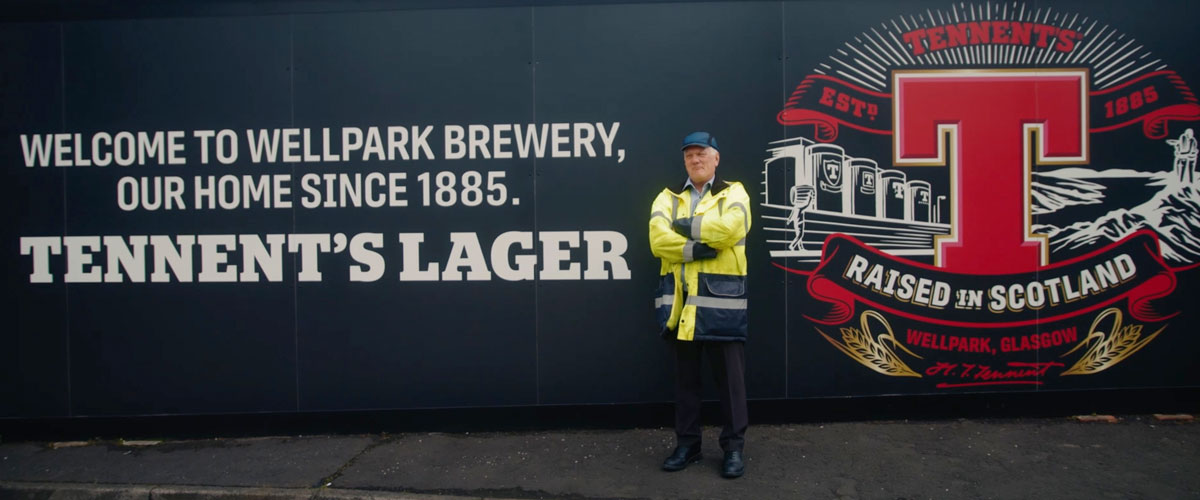
A fond farewell to the beer master
By Dave Hunter
Pubs have been an important part of Keith Lugton’s life for over forty years.
The Tennent’s master brewer, who is retiring after 47 years, has helped develop over 30 beers for the company during his tenure, in addition to overseeing the production of the ‘Big Red T’ itself, Tennent’s Lager.
Having joined the company in 1977, Keith worked initially at the Tennent’s brewery in Roseburn, Edinburgh, before transferring to the famous Wellpark Brewery in Glasgow, where he became part of a bustling team of around 700 people – more than 60 of which were involved in brewing.
Working first as a trainee brewer before spending time in filtration, packaging and the company’s maltings in Alloa, Keith progressed to head brewer in 1992.
And pubs were always a part of his life as he developed in the company.
Citing former head brewers David Johnstone and George Haig as mentors, Keith said both men knew the importance of forming relationships with the publicans on the front line.
“I learned so much from those guys,” Keith told SLTN. “Not just technical (things). They were well known in the trade. We used to go out on trade visits on a Friday at lunchtime. Normally we’d go down to the Press Bar, have a chat with the manager there. It was really about building relationships and it was fantastic. Then you would go to Babbity’s, when Fraser (Laurie) owned it, and there was great banter in there, talking about beer. And then we’d usually go into the Strathduie and the Black Bull as well. Sometimes we would venture further afield.
“With David and George it was about people skills. Relationship building. That, you don’t learn in a textbook. I’ve always focused on that. Networking and everything else is key.”

The landscape was quite a bit different then.
While Tennent’s Lager was always the flagship, Tennent’s was producing a wide range of beers in the 80s and early 90s, from export ales for its then-parent company Bass to names like Fowler’s Wee Heavy, Piper Export and Tennent’s 80 Shilling.
The formats, too, were quite different, with beer tanks a common sight in Scottish beer cellars. Tanks – which are now coming back into fashion with outlets including The Citizen in Glasgow and Malones bars in Haymarket and Leith making a feature of them – were popular during the 80s in high-volume pubs as they meant the licensee and their staff weren’t constantly having to change kegs.
As volumes dropped, the tanks became less practical. And, again, pubs provided an insight as to the changing face of beer.
“I remember we were out one night and we went to the Horseshoe Bar and I went into the cellar,” recalled Keith.
“They had five tanks, but they had boxes and boxes of Budweiser and various other bottled products. That was quite horrifying to some extent – that we had a big-volume outlet with tank beer and then there was all that packaged beer there.
“And then you started to see that swing – more packaged beer, less keg beer, draught beer. That went on for quite a while, where probably more people were drinking bottled beer than keg beer.”
Though volumes in 2024 are considerably smaller than they were in the 70s, 80s and 90s, Keith has seen a resurgence in draught beer in Scotland’s pubs in more recent years, albeit with more brands and smaller keg sizes.
He said: “We had tank beer, we had 36 gallon barrels, we had 22 gallon containers, we had 50 litre kegs. And now we have a lot of 30 litre kegs. Tailor the pack size format to suit the outlet. That’s been quite a change. But that’s the market. And it’s better to have that than having large containers sitting around for weeks, partially-broached. It’s always better to keep it fresh, turn it over within a week, and everybody’s happy.”
It’s a big change from Keith’s early days with the company, when two thirds of the brewery’s volume was sold through pubs.

“The whole dynamic of on-trade and off-trade has shifted,” said Keith.
“The on-trade’s really been hammered over the years – all the regulatory impacts, then Covid, and I don’t think it’s really recovered from that. It’s hard. But the pub is an essential part of life. And hopefully we see a bit of a turn. An uplift.”
As he leaves Wellpark after more than four decades, Keith is looking forward to some holidays and spending time with his grandchildren. But the wealth of experience he has amassed during his career will still be put to good use.
In addition to penning articles for organisations including the Scottish Brewing Archive Association, Keith will be working with the Institute of Brewing & Distilling on updating its syllabus.
In the meantime, he looks back fondly on a career he said always seemed more like a vocation than a job, proud of the beers he has worked on, his own development through the years, and the positive attitude he always brought to the company.
Perhaps most of all, he is proud of the team he is leaving behind.
“We always talk about the Tennent’s family – having that family environment,” he said.
“We used to say Tennent’s is in our blood. Literally, at times!
“But I think that’s why so many people have stayed for so long. Because it’s a family.”




















